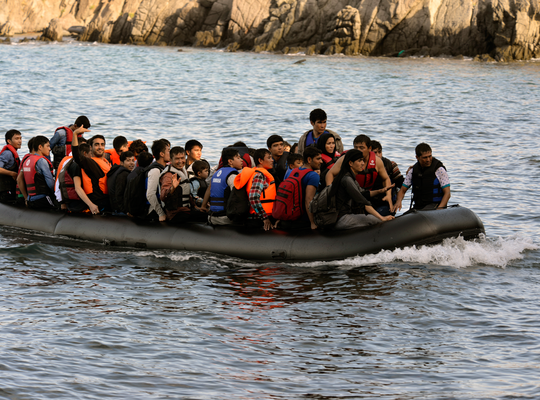You are here
Theo Francken co-launches European Border and Coast Guard

At the border between Bulgaria and Turkey, the successor to former border guard agency Frontex has been brought into existence. “With the new European Border and Coast Guard, we are offering an answer to the asylum chaos of last year,” State Secretary for Asylum and Migration Theo Francken says. “Europe must now as a priority focus on border control and the repatriation of asylum seekers who have exhausted all legal remedies, economic migrants and illegal immigrants. The establishment of Frontex 2.0 is a great step forward in this respect.”
“If the asylum crisis of 2015 has taught us anything, it is that a Europe without internal borders can only work if the external borders are controlled strongly and efficiently,” Theo Francken says. “Shared external borders mean shared responsibility. When - like last year in Greece - the outside door is open somewhere, it has immediate and far-reaching consequences, for our country as well.” For this reason, the EBCG (European Border and Coast Guard) is going to closely monitor the management of external borders by European Member States. This is not only so that it can sound the alarm in good time when things are threatening to go wrong somewhere, but also so that it can step in effectively when a Member State is not fulfilling its control duties. The new agency is being substantially strengthened for the purpose: both the budget and staff levels are gradually going to double.
More power and competences
The European Border and Coast Guard is also getting more powers to enable it to act in the field. For example, there will be a permanent reserve force of at least 1,500 agents that must be deployable at very short notice so that it can intervene in emergency situations. Belgium is contributing thirty people to the force. “Cooperation in the field of immigration is in everyone’s interests,” Theo Francken says. Apart from that, the agency will also be getting additional competences regarding the repatriation of illegal immigrants and the fight against cross-border criminality, and it will also be possible to set up common initiatives with countries on Europe’s external borders. “Each and every one of these new competences is important to get the unchecked flow of immigrants to Europe under control and guarantee the future existence of the Schengen zone,” the State Secretary emphasises.
Necessity of repatriation agreements
“Already today, Belgium is making extensive use of Frontex resources for repatriation operations. Whereas in the past we had one special flight per month, today we have three,” Theo Francken explains. “And within the new Frontex mandate, I want to move to one repatriation flight a week. But repatriation is only possible if we have the necessary repatriation agreements with the countries of origin, and that remains a bottleneck. For the Maghreb countries, which are a priority for Belgium, the negotiation mandate has been with the European Commission for over 10 years now. Since I became State Secretary, I have been taking every opportunity to remind the Commission of its responsibility in this regard. I’m expecting results, more now than ever.”

